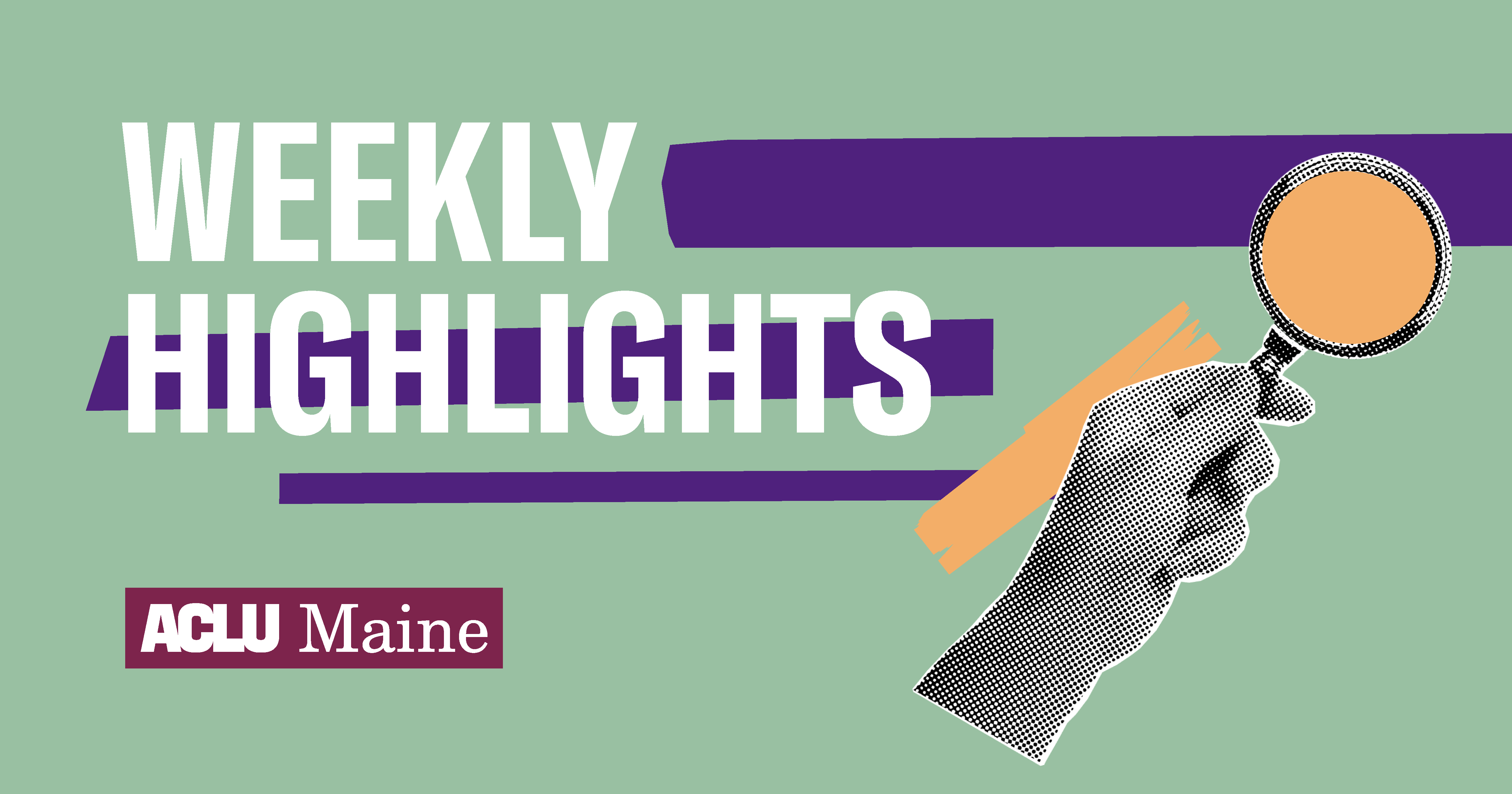This week at the ACLU of Maine: Oral arguments in NHICS v. Trump at the federal appeals court, recapping the 2025 legislative session, a save-the-date for an upcoming event in Portland, and more!
NHICS v. Trump, Brought by the ACLU of Maine and Others, Heads to the First Circuit for the U.S. Court of Appeals.

We filed a second, separate case challenging Trump’s birthright citizenship executive order in June — here’s why:
That same month, the Supreme Court issued a decision limiting the use of nationwide injunctions in three other cases challenging the order. In response, the attorneys who brought NHICS v. Trump filed a new case, Barbara v. Trump. In Barbara, the court certified a class of all babies affected by the executive order and blocked enforcement of the order against them.
This approach — using a nationwide class action — protects all babies born in the U.S. under the order, without relying on a nationwide injunction, which the Supreme Court is now restricting.
Watch our 2025 Legislative Recap Webinar

If you missed it, or want to revisit parts of the conversation, we've uploaded a recording of the webinar here.
And, if you want to dive even deeper, you can read our full 2025 Legislative Report here, and read more about each of our priorities here.
Save the Date: ACLU National Board President Comes to Portland

Join us for a conversation with Deborah about her recent book, Dividing Lines: How Transportation Infrastructure Reinforces Racial Inequality. In her book, Deborah offers a critical examination of how transportation infrastructure -- from highways and roads to sidewalks and buses -- has been used to maintain segregation and deepen racial inequality after the fall of Jim Crow.
The event will include an author talk and a panel discussion with local experts exploring transportation justice in Portland and across the country.
The ACLU of Maine will be closed from August 8 - 11 to give our staff a chance to recharge and enjoy the magic of summer in Maine. We'll be back on August 11 to continue our work!

